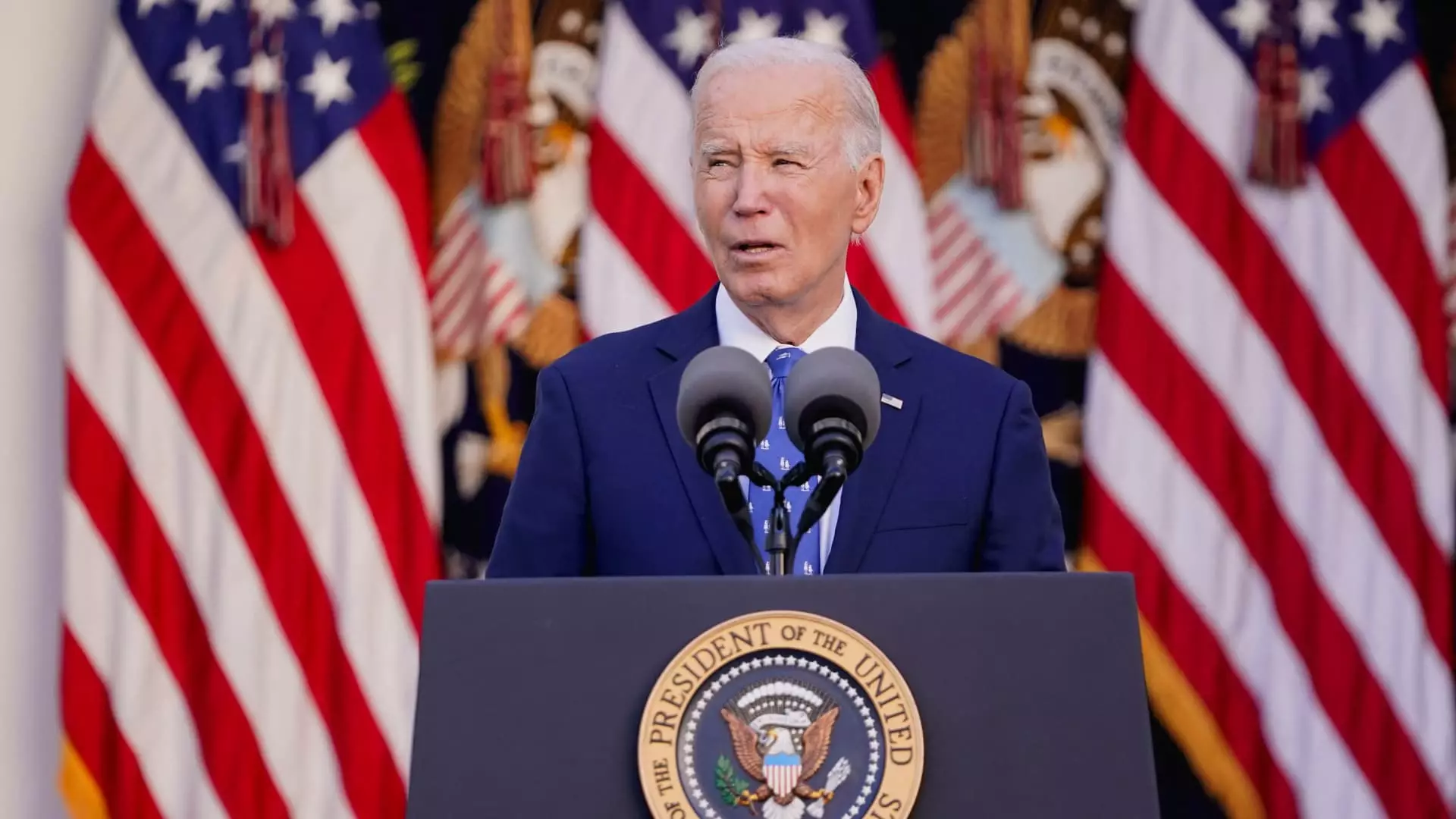On a momentous day, President Joe Biden expressed his enthusiasm regarding the end of Bashar al-Assad’s regime in Syria, emphasizing both the potential for positive change and the inherent risks associated with the nation’s political transition. Biden’s statements from the White House not only heralded a pivotal shift in the country’s governance but also echoed the long-held aspirations of the Syrian people who have endured years of transitional turmoil and conflict. He described the event as a “historical opportunity” for the reformation of Syria, recognizing both the potential for a hopeful future and the perilous path that lies ahead.
Biden articulated the significant responsibilities facing both the United States and its global partners as they engage with the emerging dynamics in Syria. His emphasis on collaboration with neighboring countries—Jordan, Iraq, Lebanon, and Israel—signaled a commitment to regional stability during this tumultuous period. This approach conveys the understanding that Syria’s recovery is not an isolated endeavor; rather, it relies heavily on diplomatic relations and situational awareness among multiple stakeholders in the Middle East.
Amidst this fragile state of transition, Biden reiterated the United States’ dedication to continuing its fight against ISIS. He warned that the vacuum created by Assad’s departure could pose significant challenges, as the militant group may seek to exploit the chaos to regain strength. Biden’s commitment to conducting precision airstrikes against ISIS strongholds underlined a dual strategy: not only mitigating the threat posed by a well-known enemy but also demonstrating America’s readiness to confront emerging dangers in a shifting landscape.
However, the threat of extremism was not limited to ISIS alone. Biden highlighted the need for careful scrutiny of various factions that contributed to Assad’s ousting, acknowledging that some of these groups also have troubling records concerning terrorism and human rights abuses. By expressing caution about these emerging powers, Biden suggested that the assessment of leadership should not only hinge upon rhetoric but also on the actual implementations of governance and the effects of their actions on the Syrian populace.
In line with his administration’s humanitarian principles, Biden articulated a vision for the restoration of Syrian society that includes providing aid to those affected by the long-standing civil conflict. After more than thirteen years of war, the Syrian people require more than just political restructuring; they need tangible assistance to rebuild their lives and communities. The U.S. commitment to fostering an independent and sovereign government in Syria reflects a desire not only for political stability but also for a functional society that can support its citizens.
Additionally, Biden’s remarks also included a personal note regarding Austin Tice, an American journalist who has been missing since 2012. This moment illustrated not just a political commitment but also a moral one, emphasizing the need to bring justice and resolution to the families of those affected by the conflict.
As the dust settles on a regime that has held power for decades, the conversation of accountability rises to the forefront. President Biden remarked on the implications of al-Assad’s resignation, noting the importance of ensuring that those who have committed abuses are held to account. This call for accountability extends beyond Assad and encompasses all groups that might jeopardize the newly formed governance structures in Syria. If the goal is to create a credible and functional government, it is crucial to address past grievances and prevent the emergence of new cycles of violence and oppression.
As the international community turns its gaze toward Syria, Biden’s balance of optimism and caution serves as a critical reminder that transition periods are intricately complex. The ideal outcome would be a nation that not only sees the departure of a tyrant but also transitions toward a robust government that respects the rights and aspirations of its citizens. The journey is sure to be fraught with challenges; however, the hope remains that a new chapter for Syria might lead to a brighter and more stable future.


Leave a Reply